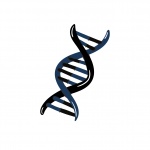















Students who want to pursue psychiatry must take Physics, Chemistry & Biology as combination subjects in their 12th class in order to sit for the MBBS qualifying exam, NEET (National Eligibility cum Entrance Test). Bachelor of Medicine and Bachelor of Surgery (MBBS), is a professional degree in medical science. A person holding the MBBS degree becomes a certified medical practitioner. The duration of MBBS course is five-six years including one year of rotational internship at hospitals, health centres, and health camps organised by non-profit organisations (NGOs). MBBS course syllabus includes studies on anatomy, pharmacology, pathology as well as community health & medicine, paediatrics, and surgery. The syllabus, prescribed in such a way that MBBS degree holders can choose a specialisation for further majoring and practising medicine. The career specialisations for MBBS students are Nephrology, Cardiology, Gynecology, Anesthesiology, Organ Transplant, Endocrine, and General Surgery, etc.
An MD is a Masters/Postgraduate degree. A candidate becomes eligible for MD only after successfully completing a MBBS degree. Some countries consider a MD degree a professional doctorate for surgeons and physicians (i.e U.S.A and, Phillipines). Others, consider it a research degree equal in value to a Ph. D. Therefore, a student completes a MD after the MBBS to obtain training on a specialization of choice. MD specializations include psychiatry, pediatrics, gynecology, obstetrics, ophthalmology, dentistry and the like.
After earning the medical degree, an individual will participate in a residency in a clinic or hospital. Most psychiatric residency programs last four years and consist of a combination of didactic learning and practical application. The person usually receives training in a number of disciplines, such as neurology, forensic psychology and chemical dependency before focusing their electives and clinical experience in a particular area during their final year. Under supervision, a student may treat a variety of issues, including anxiety, depression, sexual dysfunction, substance abuse, psychosis and developmental disabilities.
An individual must obtain a license through their state's medical board to practice psychiatry in all states. Most states have their own licensure requirements, but an individual usually need to pass an examination that tests your knowledge of state regulations and medical practices. However, in some cases, an MBBS degree followed by an MD specialising in Psychiatry is sufficient to obtain a license from the Medical Council of India (MCI) to practice as a psychiatrist.
1. All India Institute of Medical Sciences (AIIMS), New Delhi 2. Post Graduate Institute of Medical Education and Research, Chandigarh 3. Christian Medical College (CMC), Vellore 4. Armed Forces Medical College (AFMC), Pune 5. JIPMER College, Puducherry
Psychiatry is the branch of medicine focused on the diagnosis, treatment and prevention of mental, emotional and behavioral disorders. People seek psychiatric help for many reasons. The problems can be sudden, such as a panic attack, frightening hallucinations, thoughts of suicide, or hearing "voices." Or they may be more long-term, such as feelings of sadness, hopelessness, or anxiousness that never seem to lift or problems functioning, causing everyday life to feel distorted or out of control. Because they are physicians, psychiatrists can order or perform a full range of medical laboratory and psychological tests which, combined with discussions with patients, help provide a picture of a patient's physical and mental state. Their education and clinical training equip them to understand the complex relationship between emotional and other medical illnesses and the relationships with genetics and family history, to evaluate medical and psychological data, to make a diagnosis, and to work with patients to develop treatment plans. Psychiatrists use a variety of treatments – including various forms of psychotherapy, medications, psychosocial interventions and other treatments (such as electroconvulsive therapy or ECT), depending on the needs of each patient.